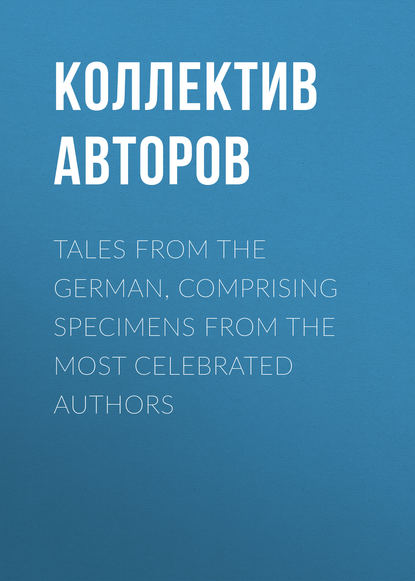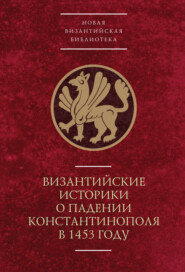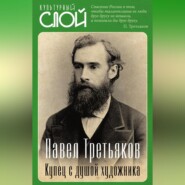По всем вопросам обращайтесь на: info@litportal.ru
(©) 2003-2024.
✖
Tales from the German, Comprising specimens from the most celebrated authors
Настройки чтения
Размер шрифта
Высота строк
Поля
Ali shuddered, when the dervish began to break out into loud laughter, and throwing off his cap and cloak, stood before him in princely splendour as Haroun al Raschid. "Wise Ali," he cried, "must I see you again in a situation where you are not a hair's breadth wiser than the caliph?" So saying, he took him by the hand and led him to an adjoining apartment, where he was received by Gulhyndi. "Accept your bride from my hands," said the caliph; "she is yours, and I renounce all my claims to her. But I will not proceed in an arbitrary manner in this affair; I have sent for your parents, and trust to obtain their consent." He had scarcely uttered these words, when Hussain and Ibrahim were brought in. "Hussain!" said the caliph, sternly, "I have reason to be very angry with you. You have not offered me your daughter on my own account, you have employed me as an instrument to wreak your revenge. You have sacrificed this poor girl to prevent Ali's union with her; she would be unhappy, had not despair inspired her with courage to disclose all to me. Give your consent, as that is the only way by which you can be restored to my favour."
"Commander of the Faithful!" replied Hussain, "yours is the power, but you are good and just, and you will not abuse it. From the moment when I discovered that my daughter would be beautiful, I formed the resolution that she should belong to you or none. I was obliged thus suddenly to put this resolution into effect by this youth, the son of my deadly enemy, who has not solicited my daughter from me, but has cunningly crept into my house in order to seduce her. That I give to you what I thought too good for every one else cannot surely displease you. You are the father of your people, and you will not punish with your displeasure your slave, who in his trouble, flies to you for refuge."
"I know all," said the caliph; "use no shifts. You and Ibrahim shall become friends again, and render your children happy; – such is my will."
"This alliance," replied Hussain, "would be my greatest misfortune, and death more welcome. I entreat you, sire, if I have shown any fidelity and zeal towards you during my long service; reward them by allowing me the authority of a father; do not deprive me of the power over the fate of my child."
"She cannot be mine," cried Al Raschid.
"Then," said Hussain, "my misfortune is great; permit me and my daughter to go home, and mourn the loss of your favour in sackcloth and ashes."
"And you, Ibrahim," said the caliph, turning to him, "will you not advance a step towards the happiness of your child?"
"Commander of the Faithful," said Ibrahim, "I do not think that a man is made more unhappy by not obtaining a woman upon whom he has set his heart, perhaps only for a moment. If it were so, I ought to be very unhappy, for Hussain is the very man who once robbed me of my betrothed, and with her the hope of my youth. I trust my son will be contented to share the fate of his father, and to suffer what I have suffered – a grief which I know, from experience, does not endure long, and for which the world affords us sufficient compensation."
The blood came into Al Raschid's face, and a fire flashed from his eyes, which usually was the forerunner of sudden wrath; still he restrained himself. "Is it your unalterable resolution," he asked, "to conspire against the happiness of this young man, and against my will?"
Both parents perceived the emotion of the caliph's mind. Hussain continued calm, but Ibrahim turned pale, and threw himself at the caliph's feet, exclaiming: "I am your slave, your pleasure be done! You are wise, and you act as the successor of the Prophet, as the guardian angel of religion and the people. I give my consent." "My son," he thought within himself, "may take several wives; he may repudiate her whom he took first; I shall not lose so much as Hussain, and be no nearer to him than formerly."
Hussain contemplated him, smiling, with a chilling and contemptuous expression.
"And what do you say, Hussain?" asked the caliph.
"Commander of the Faithful, your will be done. To-morrow I will celebrate the nuptials of my daughter; but you will permit me to take her home with me to-night. Ali's betrothed must not pass the night in the harem of the caliph."
"Take her; but your life shall answer for her."
"I answer for her with my life," said Hussain, with composure; and taking his daughter by her hand, he retired.
"Oh! let him not go hence!" exclaimed Ali. "Gulhyndi, my beloved!"
She turned round, and looked at Ali with a sorrowful smile, and then went away with her father. The caliph consoled Ali, who went home with Ibrahim, in the greatest despair.
When Hussain arrived home, he ordered his daughter to go to bed immediately, that she might rise with the early dawn, bathe, perform her devotions, and prepare for a long journey which they would make together. Poor Gulhyndi passed the night in the greatest affliction, being convinced that her father had arranged every thing for flight, and that she had seen Ali for the last time.
Early the next morning Hussain entered her chamber, and seeing her on her knees in fervent prayer, retired until she had finished; he then ordered Maria to go to her room. He now said to his daughter: "I was delighted to see you praying so fervently. I doubt not but that Allah will forgive the sins that you have committed in this world against your father and your honour. All is now over in this world. My enemy has triumphed; he has won the heart of the caliph, and Haroun al Raschid will use his power, and have me executed if I do not comply with his wish. As ever since I commenced life, honour always had a higher worth than life itself, I now much prefer death to disgrace. But I will not quit this world until I have deprived you of the possibility of degrading me after my death, by a shameful alliance with the son of my worst enemy. The prophet has given every Mussulman the right of chastising his children, and has made him the master of their lives. As a wise guardian, who sees that the flower which he has carefully cultivated will, in time, be destroyed by worms, so do I pluck you, fair bud, that you may not wither disgracefully. I take you with me to the everlasting habitations, and hope to answer there for this act with a good conscience. Praised be Allah, the Lord of the creation, the Judge of the last day, the most merciful Being!"
With these words he took a dagger from his bosom, and plunged it into the heart of the beautiful Gulhyndi. For an instant he held his daughter, who was now pale in his arms, looked at her, and then laid her gently on the ground. He now took a blue silk cord, put it round his neck, drew it tight without trembling, and thus voluntarily cut short his days, faithful to his pride and implacability.
The following morning the caliph went for Hussain and Gulhyndi; only their corpses were found. Ali shed many tears on the pale face of his Gulhyndi, but they could not wake her. It being a custom with the Mohammedans to bury their dead three hours after their decease, Hussain and his daughter were deposited immediately in a burial vault outside of the city, whither Ali followed his beloved. When all had retired, he alone continued sitting in the burying-ground, on her tomb. In the clear night, when the moon illumined the tomb, he said, after a deep silence: "I must see her once more; the sacred moon shall once more shine upon her in my arms, before her beautiful body is reduced to dust." As he said these words, he saw something moving in the high grass between the graves. In hopes that it was the grave-digger, he went near, to ask him to lift the stone from the tomb. On approaching quite close, he discovered that it was Lockman, and shuddered at meeting this little monster on so sacred a spot. By the pale moonlight he appeared to him more hideous and fiend-like than formerly. "What are you doing here?" he asked him.
"I assist my master, as I am ever wont to do."
"I no longer want your assistance; you are the cause of her misfortune and her death; you seduced me to see her; without me she would still live and be happy."
"Would you rather wish never to have seen her?"
"Go call the grave-digger, and then go home."
"The grave-digger is from home; I know what you want, and can afford you better assistance than he."
"You shall not move the stone from the grave."
"That would be of little use, for she is not in it."
"She is with Allah, but her body is there. I have myself lowered the coffin into the vault, and have never since left the spot."
"Where her body is, there she also is," said Lockman; "but neither of them is in the vault."
Having said these words, he picked up a human bone from the ground, and knocked with it gently three times on the stone, which moved of its own accord. "Now look in," said he.
Ali looked, and saw Gulhyndi's and Hussain's coffins standing open and empty. "Heaven! what is this?" cried Ali, rending his clothes in despair.
"Gulhyndi is not dead," said Lockman; "she lives, and still lives for you; if you wish to see her, go some night across the desert. Rest yourself near the spring of Ali Haymmamy, and then go towards the ruins of Babylon; towards the west there is a large grotto of marble; at its entrance you will find me ready to conduct you to your beloved. Banish fear from your heart, and harbour no unworthy suspicion towards your friend and protector."
When Lockman had thus spoken, he went away and disappeared among the graves, a few pale blue ignes fatui alone marking the way which he went. Ali, who followed him with his eye, started up as from a frightful dream, scarcely knowing what to think of all that had happened. The moon cast her pale light on the tomb enclosing the coffins; a heavy dew had fallen on the grass, and grasshoppers were chirping on its moist blades.
SECOND PART
In the centre of Upper Asia, the most ancient, and, at the same time the least known country in the world, is a high table-land, across which runs a chain of lofty rocky mountains. Its soil consists of coarse sand and gravel, in which, however, are often found the most beautiful precious stones. Here and there is found, during the summer-season, patches of rich pasture to which the Mongols bring their cattle. Over its greatest extent it is quite barren, without either tree or shrub, although in some places springs are gushing forth which soon run off in the stony ground. The elevated basins in the snow-capped mountains are reservoirs from which innumerable small rivulets flow down in every direction through the crevices, and form the mighty rivers of Asia.
Large heaps of stones are piled up at short distances, pointing out the way to the caravans, and near them wells are dug out for their refreshment in the burning heat. Besides these are found many salt lakes among these mountains, which, viewed from a distance, have a reddish appearance. The wild horse Dscheggetai is seen running about in herds. In its slight make it resembles the mule; and with its slim stag-like neck, and its beautiful cream colour, it rushes across the desert like clouds of drifted sand. All the domestic animals of Europe, the dog, cat, ox, rein-deer, and horse, here rove in their primitive wildness, at war with the still wilder and untamed lions, tigers, panthers, and the horrible serpents who dwell in the clefts and creep forth in the darkness of night. Here and there the diggers of rhubarb have built their huts on some rocky fastness under the green cedars, and are the only human beings who are met in this wild scene.
In these immense unknown regions there are parts surrounded by chains of lofty mountains, where beautiful nature still blooms in a paradisaical youthfulness, which no mortal eye ever yet has seen.
Here the spirits live in all their natural grandeur, as in the first days of creation before Allah had formed man. They choose their abode according to their several dispositions; the evil spirits, whose nature is malicious, and whose deeds are destructive, haunt, for the most part, the wildest and most barren spots, living in dark damp caverns deep below the earth, and bestride at night the pestilential winds to visit the men on the fertile southern coasts of Asia. The good spirits live in cool grottoes in the beautiful and fertile parts near springs, and often with the morning dawn soar through the air to Arabia, Persia, and India, to refresh and accompany those men who render themselves worthy of their assistance. The Eastern nations call this unknown wonderful land Ginistan; and though knowing it to be on the earth, they yet think it inaccessible, and separate it from all the inhabited countries of the globe.
In one of these beautiful grottoes, where clear crystals forced themselves like icicles through stones glittering with ore, the lovely Gulhyndi for the first time reopened her eyes, being roused by a rippling spring in the back ground, which gushed down into a basin of polished jasper. The limpid stream served her as a mirror when she awoke, and there she saw herself reflected in the most charming morning-dress. After having contemplated herself for a moment, she uttered a sigh of wonder: all around her became animated. From the streamlet rose nymphs with rushes in their hair, the water still flowing from their snowy bosoms; in their hands they had instruments which they held against the rippling of the stream, and these struck the cords and produced wonderful sounds. In the trees hung beautiful boys with wings of splendid colours; their golden locks flowed from their heads like foliage, and a glow like that of the rising sun beamed from their rosy cheeks. From the clefts in the rocks fantastic figures stretched forth their faces, pale, mournful faces, with crowns of gold and precious stones on their heads, holding silver gongs in their hands, on which were suspended silver bells, which they struck. Gulhyndi's astonishment was at its height, when she heard these singular creatures sing the following words:
"Mountains, rivers, breezes fleet,
Greet thee, sweet.
Greet thee in the dew drop's bright,
Queen of light.
The night has lull'd the rose's child,
Soft and mild,
Has she wrapp'd it in her veil,
But its leaves are opened all
When sunbeams fall
Warmly at morn into the vale.
And thy fate has been the same.
Thy soft frame
Died away in slumber deep.
Soon has sleep
Colour'd thy fair cheeks again.
The wild bird's strain
Wakes thee from thy sweet repose.
In the fresh-blooming lap of nature
Thou hast gained new charms, fair creature,
Like the rose."
"Commander of the Faithful!" replied Hussain, "yours is the power, but you are good and just, and you will not abuse it. From the moment when I discovered that my daughter would be beautiful, I formed the resolution that she should belong to you or none. I was obliged thus suddenly to put this resolution into effect by this youth, the son of my deadly enemy, who has not solicited my daughter from me, but has cunningly crept into my house in order to seduce her. That I give to you what I thought too good for every one else cannot surely displease you. You are the father of your people, and you will not punish with your displeasure your slave, who in his trouble, flies to you for refuge."
"I know all," said the caliph; "use no shifts. You and Ibrahim shall become friends again, and render your children happy; – such is my will."
"This alliance," replied Hussain, "would be my greatest misfortune, and death more welcome. I entreat you, sire, if I have shown any fidelity and zeal towards you during my long service; reward them by allowing me the authority of a father; do not deprive me of the power over the fate of my child."
"She cannot be mine," cried Al Raschid.
"Then," said Hussain, "my misfortune is great; permit me and my daughter to go home, and mourn the loss of your favour in sackcloth and ashes."
"And you, Ibrahim," said the caliph, turning to him, "will you not advance a step towards the happiness of your child?"
"Commander of the Faithful," said Ibrahim, "I do not think that a man is made more unhappy by not obtaining a woman upon whom he has set his heart, perhaps only for a moment. If it were so, I ought to be very unhappy, for Hussain is the very man who once robbed me of my betrothed, and with her the hope of my youth. I trust my son will be contented to share the fate of his father, and to suffer what I have suffered – a grief which I know, from experience, does not endure long, and for which the world affords us sufficient compensation."
The blood came into Al Raschid's face, and a fire flashed from his eyes, which usually was the forerunner of sudden wrath; still he restrained himself. "Is it your unalterable resolution," he asked, "to conspire against the happiness of this young man, and against my will?"
Both parents perceived the emotion of the caliph's mind. Hussain continued calm, but Ibrahim turned pale, and threw himself at the caliph's feet, exclaiming: "I am your slave, your pleasure be done! You are wise, and you act as the successor of the Prophet, as the guardian angel of religion and the people. I give my consent." "My son," he thought within himself, "may take several wives; he may repudiate her whom he took first; I shall not lose so much as Hussain, and be no nearer to him than formerly."
Hussain contemplated him, smiling, with a chilling and contemptuous expression.
"And what do you say, Hussain?" asked the caliph.
"Commander of the Faithful, your will be done. To-morrow I will celebrate the nuptials of my daughter; but you will permit me to take her home with me to-night. Ali's betrothed must not pass the night in the harem of the caliph."
"Take her; but your life shall answer for her."
"I answer for her with my life," said Hussain, with composure; and taking his daughter by her hand, he retired.
"Oh! let him not go hence!" exclaimed Ali. "Gulhyndi, my beloved!"
She turned round, and looked at Ali with a sorrowful smile, and then went away with her father. The caliph consoled Ali, who went home with Ibrahim, in the greatest despair.
When Hussain arrived home, he ordered his daughter to go to bed immediately, that she might rise with the early dawn, bathe, perform her devotions, and prepare for a long journey which they would make together. Poor Gulhyndi passed the night in the greatest affliction, being convinced that her father had arranged every thing for flight, and that she had seen Ali for the last time.
Early the next morning Hussain entered her chamber, and seeing her on her knees in fervent prayer, retired until she had finished; he then ordered Maria to go to her room. He now said to his daughter: "I was delighted to see you praying so fervently. I doubt not but that Allah will forgive the sins that you have committed in this world against your father and your honour. All is now over in this world. My enemy has triumphed; he has won the heart of the caliph, and Haroun al Raschid will use his power, and have me executed if I do not comply with his wish. As ever since I commenced life, honour always had a higher worth than life itself, I now much prefer death to disgrace. But I will not quit this world until I have deprived you of the possibility of degrading me after my death, by a shameful alliance with the son of my worst enemy. The prophet has given every Mussulman the right of chastising his children, and has made him the master of their lives. As a wise guardian, who sees that the flower which he has carefully cultivated will, in time, be destroyed by worms, so do I pluck you, fair bud, that you may not wither disgracefully. I take you with me to the everlasting habitations, and hope to answer there for this act with a good conscience. Praised be Allah, the Lord of the creation, the Judge of the last day, the most merciful Being!"
With these words he took a dagger from his bosom, and plunged it into the heart of the beautiful Gulhyndi. For an instant he held his daughter, who was now pale in his arms, looked at her, and then laid her gently on the ground. He now took a blue silk cord, put it round his neck, drew it tight without trembling, and thus voluntarily cut short his days, faithful to his pride and implacability.
The following morning the caliph went for Hussain and Gulhyndi; only their corpses were found. Ali shed many tears on the pale face of his Gulhyndi, but they could not wake her. It being a custom with the Mohammedans to bury their dead three hours after their decease, Hussain and his daughter were deposited immediately in a burial vault outside of the city, whither Ali followed his beloved. When all had retired, he alone continued sitting in the burying-ground, on her tomb. In the clear night, when the moon illumined the tomb, he said, after a deep silence: "I must see her once more; the sacred moon shall once more shine upon her in my arms, before her beautiful body is reduced to dust." As he said these words, he saw something moving in the high grass between the graves. In hopes that it was the grave-digger, he went near, to ask him to lift the stone from the tomb. On approaching quite close, he discovered that it was Lockman, and shuddered at meeting this little monster on so sacred a spot. By the pale moonlight he appeared to him more hideous and fiend-like than formerly. "What are you doing here?" he asked him.
"I assist my master, as I am ever wont to do."
"I no longer want your assistance; you are the cause of her misfortune and her death; you seduced me to see her; without me she would still live and be happy."
"Would you rather wish never to have seen her?"
"Go call the grave-digger, and then go home."
"The grave-digger is from home; I know what you want, and can afford you better assistance than he."
"You shall not move the stone from the grave."
"That would be of little use, for she is not in it."
"She is with Allah, but her body is there. I have myself lowered the coffin into the vault, and have never since left the spot."
"Where her body is, there she also is," said Lockman; "but neither of them is in the vault."
Having said these words, he picked up a human bone from the ground, and knocked with it gently three times on the stone, which moved of its own accord. "Now look in," said he.
Ali looked, and saw Gulhyndi's and Hussain's coffins standing open and empty. "Heaven! what is this?" cried Ali, rending his clothes in despair.
"Gulhyndi is not dead," said Lockman; "she lives, and still lives for you; if you wish to see her, go some night across the desert. Rest yourself near the spring of Ali Haymmamy, and then go towards the ruins of Babylon; towards the west there is a large grotto of marble; at its entrance you will find me ready to conduct you to your beloved. Banish fear from your heart, and harbour no unworthy suspicion towards your friend and protector."
When Lockman had thus spoken, he went away and disappeared among the graves, a few pale blue ignes fatui alone marking the way which he went. Ali, who followed him with his eye, started up as from a frightful dream, scarcely knowing what to think of all that had happened. The moon cast her pale light on the tomb enclosing the coffins; a heavy dew had fallen on the grass, and grasshoppers were chirping on its moist blades.
SECOND PART
In the centre of Upper Asia, the most ancient, and, at the same time the least known country in the world, is a high table-land, across which runs a chain of lofty rocky mountains. Its soil consists of coarse sand and gravel, in which, however, are often found the most beautiful precious stones. Here and there is found, during the summer-season, patches of rich pasture to which the Mongols bring their cattle. Over its greatest extent it is quite barren, without either tree or shrub, although in some places springs are gushing forth which soon run off in the stony ground. The elevated basins in the snow-capped mountains are reservoirs from which innumerable small rivulets flow down in every direction through the crevices, and form the mighty rivers of Asia.
Large heaps of stones are piled up at short distances, pointing out the way to the caravans, and near them wells are dug out for their refreshment in the burning heat. Besides these are found many salt lakes among these mountains, which, viewed from a distance, have a reddish appearance. The wild horse Dscheggetai is seen running about in herds. In its slight make it resembles the mule; and with its slim stag-like neck, and its beautiful cream colour, it rushes across the desert like clouds of drifted sand. All the domestic animals of Europe, the dog, cat, ox, rein-deer, and horse, here rove in their primitive wildness, at war with the still wilder and untamed lions, tigers, panthers, and the horrible serpents who dwell in the clefts and creep forth in the darkness of night. Here and there the diggers of rhubarb have built their huts on some rocky fastness under the green cedars, and are the only human beings who are met in this wild scene.
In these immense unknown regions there are parts surrounded by chains of lofty mountains, where beautiful nature still blooms in a paradisaical youthfulness, which no mortal eye ever yet has seen.
Here the spirits live in all their natural grandeur, as in the first days of creation before Allah had formed man. They choose their abode according to their several dispositions; the evil spirits, whose nature is malicious, and whose deeds are destructive, haunt, for the most part, the wildest and most barren spots, living in dark damp caverns deep below the earth, and bestride at night the pestilential winds to visit the men on the fertile southern coasts of Asia. The good spirits live in cool grottoes in the beautiful and fertile parts near springs, and often with the morning dawn soar through the air to Arabia, Persia, and India, to refresh and accompany those men who render themselves worthy of their assistance. The Eastern nations call this unknown wonderful land Ginistan; and though knowing it to be on the earth, they yet think it inaccessible, and separate it from all the inhabited countries of the globe.
In one of these beautiful grottoes, where clear crystals forced themselves like icicles through stones glittering with ore, the lovely Gulhyndi for the first time reopened her eyes, being roused by a rippling spring in the back ground, which gushed down into a basin of polished jasper. The limpid stream served her as a mirror when she awoke, and there she saw herself reflected in the most charming morning-dress. After having contemplated herself for a moment, she uttered a sigh of wonder: all around her became animated. From the streamlet rose nymphs with rushes in their hair, the water still flowing from their snowy bosoms; in their hands they had instruments which they held against the rippling of the stream, and these struck the cords and produced wonderful sounds. In the trees hung beautiful boys with wings of splendid colours; their golden locks flowed from their heads like foliage, and a glow like that of the rising sun beamed from their rosy cheeks. From the clefts in the rocks fantastic figures stretched forth their faces, pale, mournful faces, with crowns of gold and precious stones on their heads, holding silver gongs in their hands, on which were suspended silver bells, which they struck. Gulhyndi's astonishment was at its height, when she heard these singular creatures sing the following words:
"Mountains, rivers, breezes fleet,
Greet thee, sweet.
Greet thee in the dew drop's bright,
Queen of light.
The night has lull'd the rose's child,
Soft and mild,
Has she wrapp'd it in her veil,
But its leaves are opened all
When sunbeams fall
Warmly at morn into the vale.
And thy fate has been the same.
Thy soft frame
Died away in slumber deep.
Soon has sleep
Colour'd thy fair cheeks again.
The wild bird's strain
Wakes thee from thy sweet repose.
In the fresh-blooming lap of nature
Thou hast gained new charms, fair creature,
Like the rose."

















